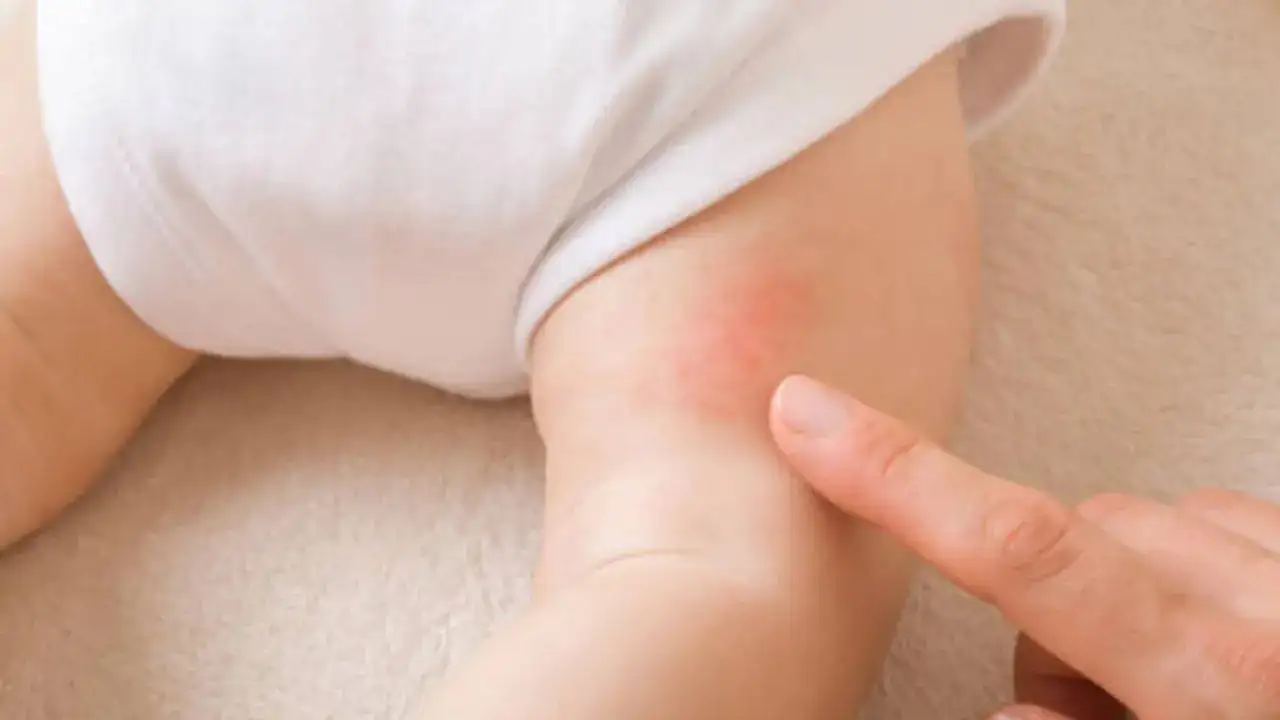Pallavi Mehra • 10 May 2025
Prickly Heat And Diaper Rashes: Are These Everyday Summer Habits Harming Your Baby’s Skin?

Prickly Heat And Diaper Rashes: Are These Everyday Summer Habits Harming Your Baby’s Skin? (Image Credits: iStock)
Summer may be fun for most of us, but for babies, it can quickly become a season of discomfort. The sweltering heat, high humidity, excessive sweating, and constant exposure to moisture can turn your baby’s otherwise cheerful mood into crankiness and tears. If your little one is fussy, itchy, or breaking out in red patches—don’t panic. These are common in summer, but knowing how to manage them makes all the difference.
"Summers can be particularly harsh on infants because their skin barrier is still developing," says Dr Safia Tanyeem, MBBS, MD DVL, PGDCC, Dermatologist at Apollo Cradle & Children’s Hospital, Bengaluru-Koramangala. "Their body struggles to regulate temperature, and sweat glands are immature, which makes them more prone to heat rashes, irritation, and infections."
Why Summers Can Be Irritating for Babies
Babies spend most of their time either lying down or swaddled, which increases heat retention and sweat accumulation—especially in areas like the neck, armpits, and groin. Add to that the friction from diapers and clothing, and their skin becomes a breeding ground for rashes, inflammation, and infections."Parents often notice their baby becoming irritable, especially after being outdoors or post naps," explains Dr Tanyeem. "This isn’t just restlessness. The heat can cause actual physical discomfort due to sweat getting trapped in folds and creases of the body, leading to red, itchy bumps called prickly heat."
Common Causes of Summer Skin Problems in Babies
Dr Tanyeem shares main triggers:- Humidity & Sweat: “Sweat trapped under the skin leads to miliaria or prickly heat. This is one of the most common summer complaints,” she says.
Preventive Steps to Keep Your Baby Cool and Comfortable
Prevention is always better than cure—especially in summer. Dr Tanyeem recommends:- “Dress your baby in light, breathable cotton clothing. Avoid overdressing even indoors.”
If your baby is older than six months, consult your paediatrician about using a suitable moisturiser or rash cream.
What to Do If a Rash Appears
Despite all precautions, rashes can happen. “If you notice redness, bumps, or your baby is scratching a lot, apply a zinc oxide-based diaper rash cream and allow the area to air out,” says Dr Tanyeem. “Avoid talcum powders or fragranced lotions, as these can worsen irritation.”For conditions like eczema, she advises using prescribed moisturisers and avoiding triggers like heat, sweat, and certain fabrics. “Hydration is also key—if the baby is on solids, encourage frequent sips of water.”
And when should you see a doctor? “If the rash spreads, oozes, or your baby develops a fever, consult a dermatologist immediately. Delaying treatment can worsen the condition or cause secondary infections,” she warns.
Summers can turn into a season of stress for your baby’s skin if not managed well. But with the right habits—light clothing, frequent diaper changes, regular baths, and careful monitoring—you can keep your little one cool, comfortable, and happy.
“Ultimately, it’s about being observant and gentle,” says Dr. Tanyeem. “Babies can't communicate discomfort verbally, but their skin often tells the story. Listen to it.”
Get Latest News Live on Times Now along with Breaking News and Top Headlines from Health and around the world.